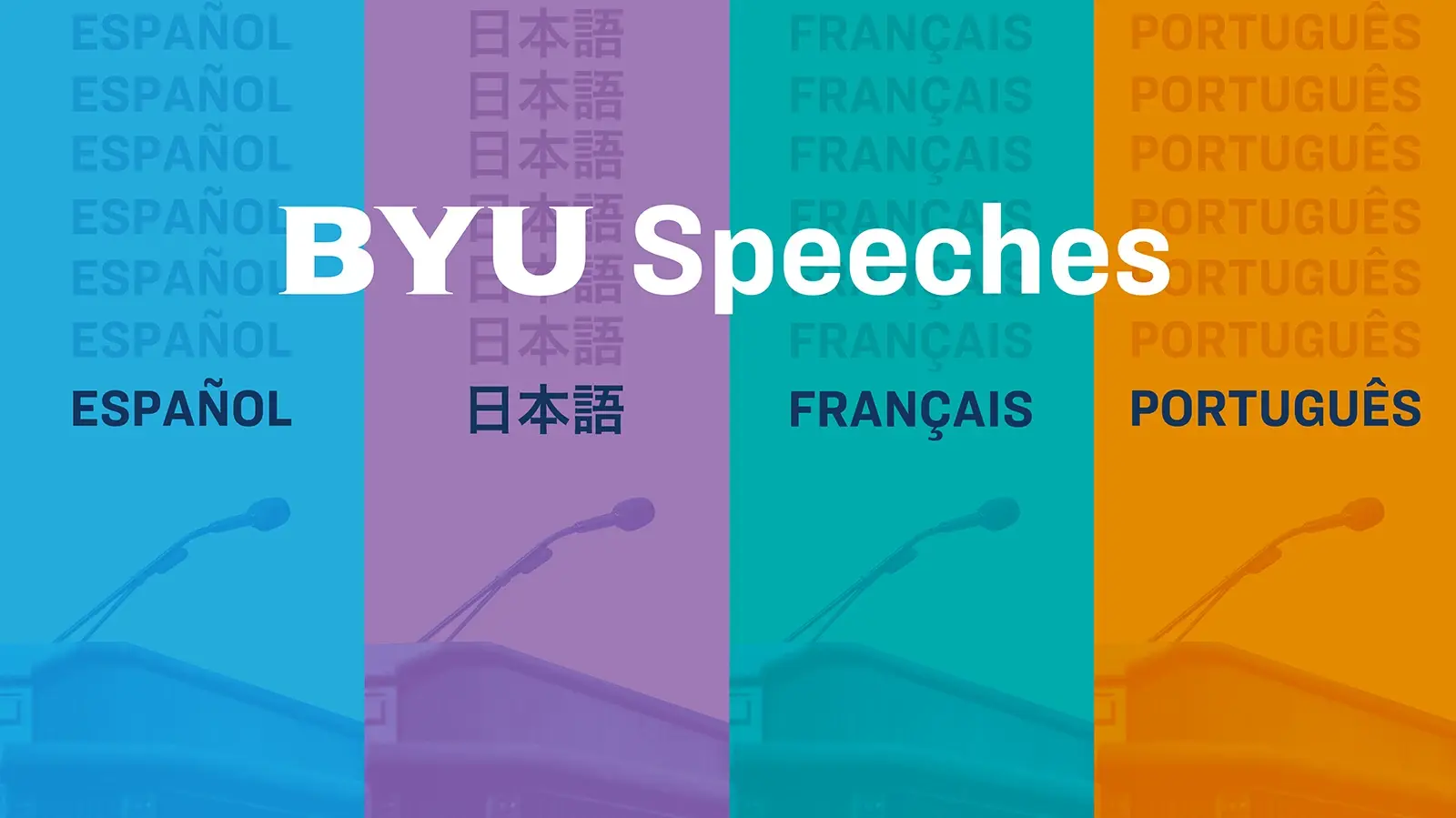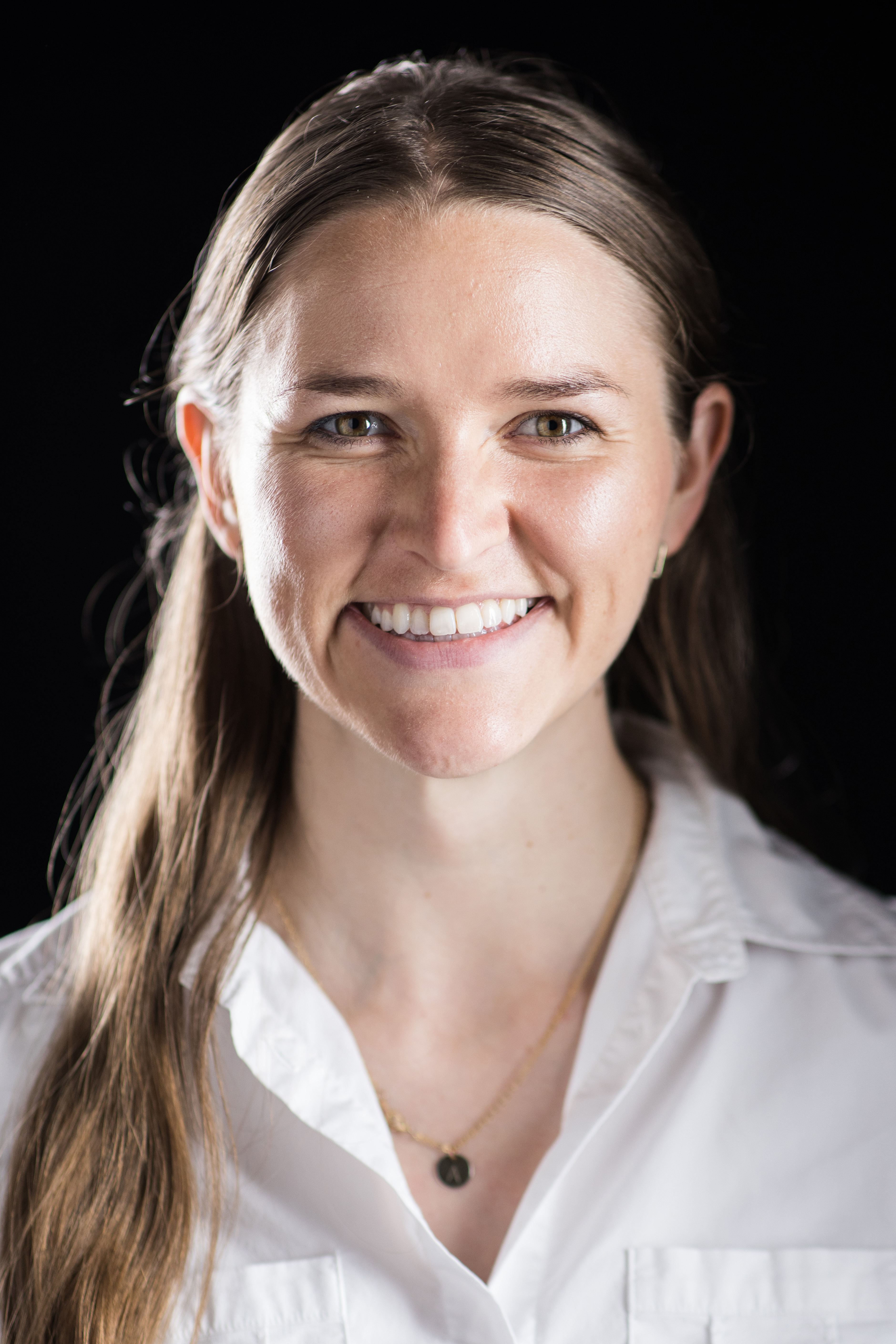BYU Speeches Now Available in Four Languages
February 21, 2023 • Blog Post
Updated February 2024

Over the past decade, the BYU Speeches inbox has been inundated with heartfelt pleas for translations of BYU devotionals to be available in additional languages. In response, we are happy to announce the launch of two new BYU Speeches translated pages: French and Portuguese!
Making BYU devotional addresses available to the public has been our focus since 1972. What started as a group of editors printing weekly pamphlets of the university’s speeches grew into a major department managing the robust BYU Speeches website and social media accounts. And the number of people engaging with BYU Speeches content grows exponentially with each new year!
By creating translations for key speeches, we meet a global need while giving language students and native speakers inspiring learning opportunities in their field that are unmatched elsewhere on BYU campus. As we expand our translation efforts, we hope to share the unique light of BYU and bring messages of hope to people around the world.
Select BYU Speeches and related content are now available in the following languages:
French (New!)
- BYU Speeches Français (website)
- BYU Speeches Français (YouTube)
- BYU Speeches Français (podcast)
- speeches.fra@byu.edu (email)
Portuguese (New!)
- BYU Speeches Português (website)
- BYU Speeches Português (YouTube)
- BYU Speeches Português (podcast)
- speeches.por@byu.edu (email)
Spanish (Launched in 2023)
- BYU Speeches Español (website)
- BYU Speeches Español (YouTube)
- BYU Speeches Español (Facebook)
- BYU Speeches Español (Instagram)
- BYU Speeches Español (podcast)
- speeches.spa@byu.edu (email)
Japanese (Launched in 2023)
- BYU Speeches 日本語 (website)
- BYU Speeches 日本語 (YouTube)
- speeches.jpn@byu.edu (email)
English
- BYU Speeches (website)
- BYU Speeches (YouTube)
- BYU Speeches (Facebook)
- BYU Speeches (Instagram)
- BYU Speeches (Threads)
- BYU Speeches (podcasts)
- speeches@byu.edu (email)
Please help us spread the word—in every language—by sharing these BYU Speeches pages and social media accounts with everyone in your personal network: friends, family, mission connections, coworkers, classmates, and community members.
If you have any questions or if you would like to submit a request for a specific speech, please email us (addresses listed by language above).
The translation team is primarily funded through a partnership with the BYU College of Humanities.

Alayna Een is an editor and the social media manager of BYU Speeches. She is passionate about the gospel, pumpkins, and the color orange. She also loves writing poetry, chasing sunsets, and dragging her siblings to local theatrical productions.



